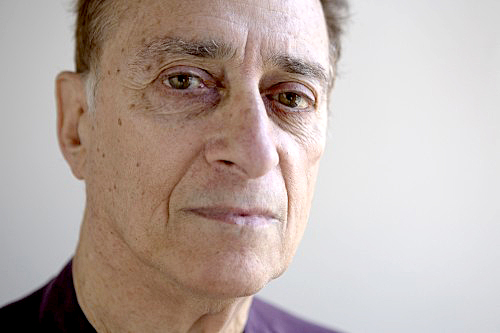
What will you do with your college degree? For alumnus and once editor-in-chief of the Clarion David Rothenberg, it was pursuing a lifelong career in the theater and eventually creating a national organization dedicated to advocacy for ex-convicts.
Alumnus David Rothenberg, BA social sciences ’55, grew up in New Jersey and attended the University of Denver at the age of 17.
“I was one of those high school kids who just plowed along, mainly because I didn’t have teachers who tapped my potential,” said Rothenberg. “In my freshman year [of college], I had a social sciences professor, Charles Merrifield, and gee! It was as if somebody had opened a thousand windows and doors for me – and I couldn’t run into enough of them to get more information.”
According to Rothenberg, being able to take classes in fields ranging from physics to journalism to theater gave him the space to grow.
Rothenberg has many stories about his four years at DU, a few of which include working with a Farmer’s Union, spying on hate preachers for the Anti-Defamation League and participating in the first student sit-in in Washington D.C. with other young white and black students. He cites these years as some of the most formative to his future.
“They gave me a confidence,” said Rothenberg. “I think that everything I was able to do afterwards was because of the confidence I got when I was at DU.”
After graduating and enlisting in the army, Rothenberg moved to New York to pursue a career in the theater.
“I’ve lived in New York for over 50 years now. I always knew that I wanted to live in New York and work in the excitement of the theater,” said Rothenberg.
Over the years, Rothenberg has worked on over 200 Broadway and off-Broadway productions, working with some of the biggest names in theater at the time, including Elizabeth Taylor, Richard Burton, Bette Davis and more.
His work in the theater led to a critical 1966 off-Broadway production of “Fortune and Men’s Eyes,” penned by Canadian playwright John Herbert about his unpleasant experiences while in prison. When no one else would produce the play because of its brutal themes, Rothenberg produced it himself to bring awareness to the horrific conditions under which convicts live.
With successful dialogues between audience and cast members following performances, Rothenberg was inspired to create the Fortune Society, a non-profit organization dedicated to prisoner advocacy and helping the formerly incarcerated improve their lives.
“It’s not a popular segment of our population, men and women who have been in prison, because judgments are made, but you know what? These young men and women can be troubled but they have the same hopes and dreams as everybody else,” said Rothenberg.
Today, the Fortune Society has offices in New York City that provide resources such as education and counseling programs and drug addiction services to prisoners. They also facilitate a residence program called “The Castle” which helps empower the formerly incarcerated and help them with their lives.
According to Rothenberg, these needs have been defined by the community and continue to grow.
“Many people coming out of prison have lost all ties with their family or never had ties to begin with, so the need is great. That’s why we continue to grow, because the need is there,” said Rothenberg.
According to Rothenberg, of the 150 Fortune Society staff members, almost two-thirds are formerly incarcerated people.
“People who have come to Fortune for help two or three or four years later join our staff because they know the problems and they know how to deal with them,” said Rothenberg.
To Rothenberg, a lifelong outspoken human rights activist, the Fortune Society marks his greatest accomplishment.
“I got a call from a man in Seattle and he said, ‘I wanted to say thank you.’ I said, ‘For what?’ and he said ‘For what? For my life. I didn’t know where I was going when I got out of prison. When I needed you the most, you all were there.’ Nothing can beat that. We created a place where people can reclaim their lives, men and women who have been written off. It’s very exciting and I’m proud of that,” said Rothenberg.
He also encourages budding activists to find outlets, whether in student or off-campus organizations, to get involved.
“There were no shortage of places for people who were motivated to get involved, and if it was that way in the fifties in Denver, I can’t imagine what it’s like now. It’s endless what could be done,” said Rothenberg.
Rothenberg’s advice for students?
“Don’t wait ‘til it’s finished to realize how good it is, know it’s good when you’re there,” said Rothenberg.











